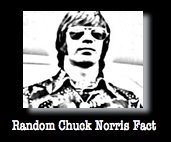This article appeared in John Tierney's column in The New York Times a couple of days ago about the primal origins of human laughter, and starts off with a muffin joke about as funny as everyone's line about the penguin. As you would guess, some would laugh at seemingly unfunny jokes, but why?
The human ha-ha evolved from the rhythmic sound — pant-pant — made by primates like chimpanzees when they tickle and chase one other while playing. Jaak Panksepp, a neuroscientist and psychologist at Washington State University, discovered that rats emit an ultrasonic chirp (inaudible to humans without special equipment) when they’re tickled, and they like the sensation so much they keep coming back for more tickling.Laughter stimulating euphoria circuits? Sounds like I need some more humor in my life.
He and Professor Provine figure that the first primate joke — that is, the first action to produce a laugh without physical contact — was the feigned tickle, the same kind of coo-chi-coo move parents make when they thrust their wiggling fingers at a baby. Professor Panksepp thinks the brain has ancient wiring to produce laughter so that young animals learn to play with one another. The laughter stimulates euphoria circuits in the brain and also reassures the other animals that they’re playing, not fighting.
The article goes on to theorize that laughter may also be a method used to establish social hierarchies and gain allies if you're low on the totem pole. So don't make fun of that ditzy blonde or clueless guy (which often times is me) when they laugh at your bad jokes--they're just trying to make friends.



1 comment:
So don't make fun of that ... clueless guy ... when they laugh at ... bad jokes--they're just trying to make friends.
Two words for that: Brandon Hoppe. Worst suck up in our junior high, and the first recipient I witnessed to the atomic sit up.
Post a Comment